
Bimbia Beach: A Hidden Gem in Cameroon’s Coastline
Nestled along the serene coastline of Cameroon, Bimbia Beach is a tranquil escape that offers a blend of natural beauty and cultural heritage. This pristine beach is a haven for those seeking relaxation away from the more crowded tourist spots. The soft golden sands and gentle waves of the Atlantic Ocean make it an ideal spot for sunbathing, swimming, and beachcombing. Beyond its natural allure, Bimbia Beach is steeped in history. It is close to the historic Bimbia Slave Port, an important site in the transatlantic slave trade. Visitors can explore the remnants of this poignant past through guided tours that provide a deep understanding of the area's historical significance. The combination of beautiful scenery and rich history makes Bimbia Beach a unique destination for both relaxation and reflection. Local fishermen often bring in their daily catch, offering a glimpse into the traditional way of life that has sustained the local communities for generations. The nearby villages are welcoming, and visitors can experience authentic Cameroonian hospitality and cuisine. Fresh seafood dishes, prepared with local spices and ingredients, are a must-try for any food lover. Whether you are looking to unwind by the sea, learn about history, or enjoy local culture, Bimbia Beach promises a memorable experience.
Local tips in Bimbia Beach
- Visit early in the morning to enjoy the beach at its most peaceful before the crowds arrive.
- Take a guided tour of the Bimbia Slave Port to fully appreciate the historical significance of the area.
- Bring cash, as local vendors and small businesses may not accept credit cards.
- Try the fresh seafood offered by local fishermen for an authentic taste of Cameroonian cuisine.
- Respect local customs and traditions when visiting nearby villages.
Bimbia Beach: A Hidden Gem in Cameroon’s Coastline
Nestled along the serene coastline of Cameroon, Bimbia Beach is a tranquil escape that offers a blend of natural beauty and cultural heritage. This pristine beach is a haven for those seeking relaxation away from the more crowded tourist spots. The soft golden sands and gentle waves of the Atlantic Ocean make it an ideal spot for sunbathing, swimming, and beachcombing. Beyond its natural allure, Bimbia Beach is steeped in history. It is close to the historic Bimbia Slave Port, an important site in the transatlantic slave trade. Visitors can explore the remnants of this poignant past through guided tours that provide a deep understanding of the area's historical significance. The combination of beautiful scenery and rich history makes Bimbia Beach a unique destination for both relaxation and reflection. Local fishermen often bring in their daily catch, offering a glimpse into the traditional way of life that has sustained the local communities for generations. The nearby villages are welcoming, and visitors can experience authentic Cameroonian hospitality and cuisine. Fresh seafood dishes, prepared with local spices and ingredients, are a must-try for any food lover. Whether you are looking to unwind by the sea, learn about history, or enjoy local culture, Bimbia Beach promises a memorable experience.
When is the best time to go to Bimbia Beach?
Iconic landmarks you can’t miss
Boucareau
Discover Boucareau Beach in Victoria: a serene escape with golden sands, clear waters, and vibrant local culture along the Gulf of Guinea.
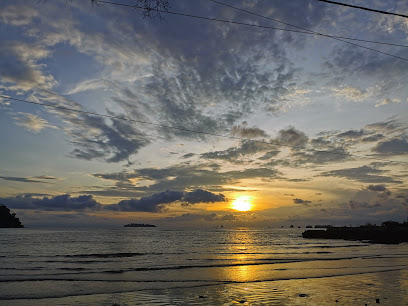
Limbe Wildlife Centre
Discover Cameroon's wildlife at the Limbe Wildlife Centre, a sanctuary dedicated to rescuing, rehabilitating, and conserving endangered species.
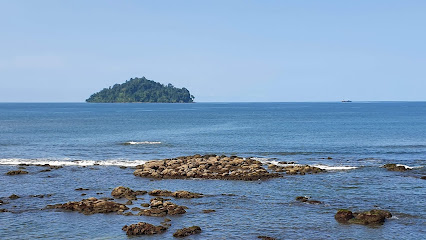
ALCEF PARK
Experience thrilling rides, serene gardens, and family fun at ALCEF Park, Limbe's top amusement destination. Open daily!
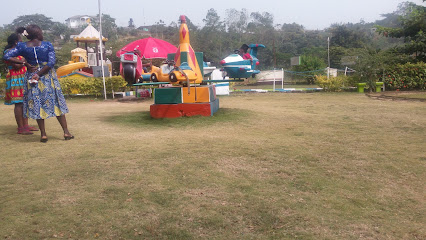
Mile 4 (Wututu Park)
Escape to the serene beauty of Mile 4 (Wututu Park) in Moliwe, where lush greenery and a peaceful ambiance offer a perfect natural retreat.
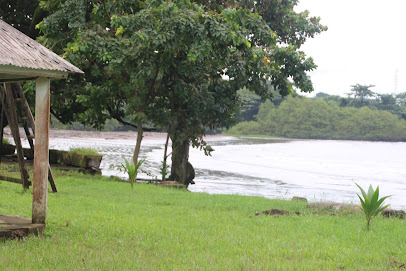
Limbe Botanic Garden
Explore Cameroon's natural beauty and botanical history at Limbe Botanic Garden, a coastal haven of diverse plant species and tranquil landscapes.
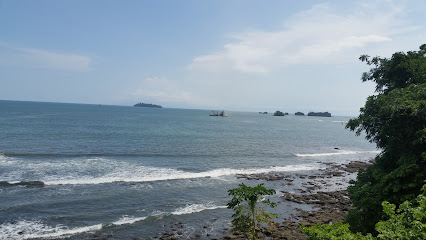
The Beach House, Botaland
Experience coastal tranquility at The Beach House, Botaland in Limbe, Cameroon, with golden sands and a serene escape by the Atlantic Ocean.
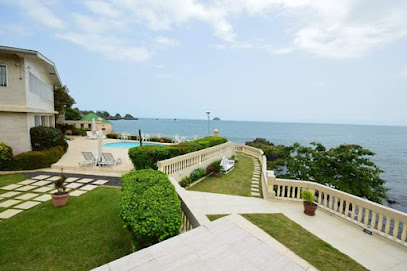
Batoke Beach
Escape to the serene shores of Batoke Beach, Cameroon, where golden sands meet tranquil turquoise waters for the perfect coastal getaway.
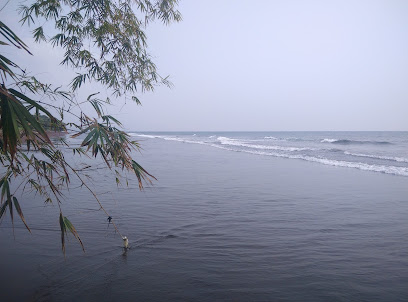
Bimbia Slave Trade Site
Explore the Bimbia Slave Trade Site for a profound historical experience that takes you through a significant chapter of the transatlantic slave trade.
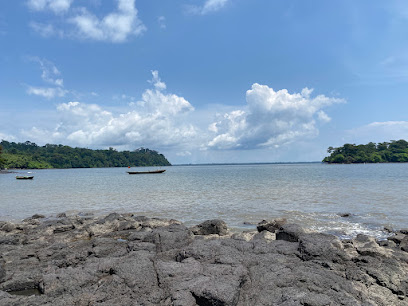
Down Beach
Discover Limbe's Down Beach: Where volcanic sands meet rich history and vibrant culture on Cameroon's stunning coast.
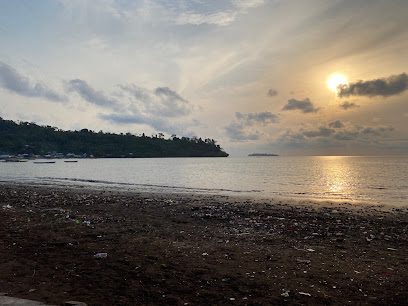
Prime Minister's Street 2, Ngeme
Discover the captivating blend of history and culture on Prime Minister's Street in Ngeme, Limbe, a landmark showcasing Cameroon's rich heritage.

Unmissable attractions to see
Rond-Point Deido
Explore the vibrant culture and history at Rond-Point Deido, a key landmark in Douala, Cameroon, filled with art and local life.
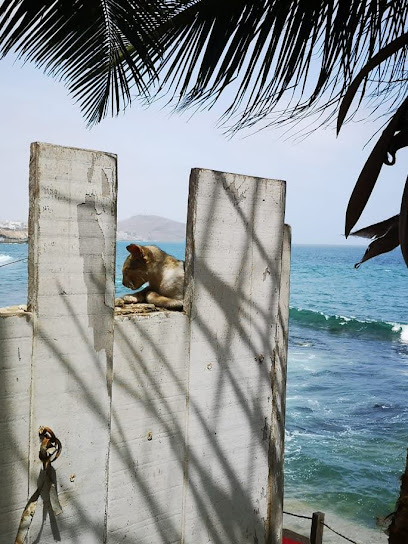
Cameroon Reunification Monument
Explore the Cameroon Reunification Monument, a stunning symbol of unity and cultural heritage in the heart of Yaoundé, offering a glimpse into the nation's history.
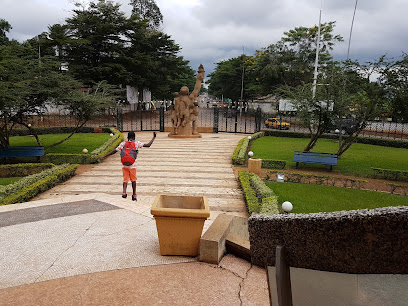
Cathedral of St Peter and Paul Bonadibong
Discover the architectural beauty and spiritual significance of Douala's iconic Cathedral of St Peter and Paul Bonadibong, a cultural landmark.
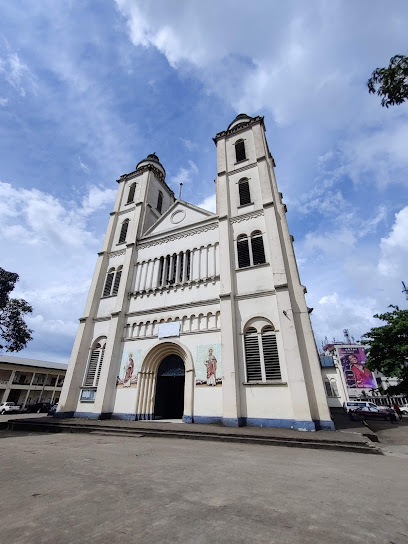
Bois Sainte Anastasie
Discover the serene beauty of Bois Sainte Anastasie in Yaoundé, Cameroon - a perfect blend of nature and dining for every traveler.
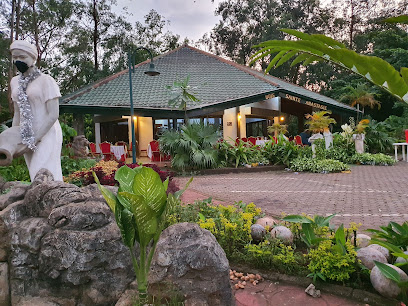
Ayos Centre
Discover Foumban's artistic soul at Ayos Centre: a vibrant hub of culture, traditions, and creative expression in the heart of Cameroon.
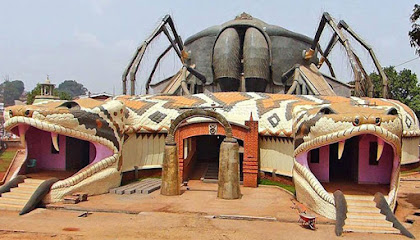
Doual'art
Discover contemporary African art at Doual'art, a vibrant cultural center and museum in Douala celebrating creativity and local talent.
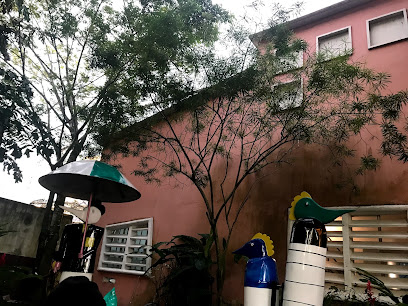
Limbe Wildlife Centre
Explore the Limbe Wildlife Centre: A leading wildlife sanctuary and educational hub dedicated to the conservation of Cameroon’s unique biodiversity.
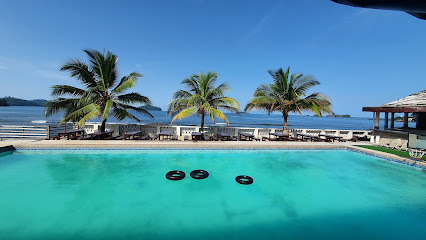
ALCEF PARK
Experience thrilling rides, relaxing gardens, and delicious dining at Limbe's premier amusement park, ALCEF Park!
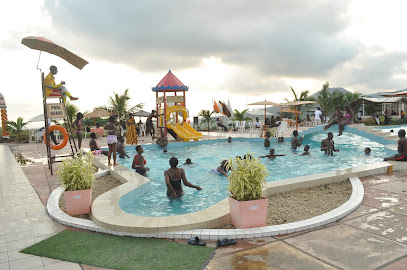
Mile 4 (Wututu Park)
Experience the serene beauty of Mile 4 Park in Moliwe, a perfect blend of nature and relaxation for every traveler.
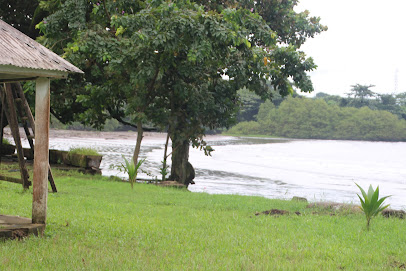
Limbe Botanic Garden
Explore the lush landscapes and rich biodiversity of Limbe Botanic Garden, a serene retreat in the heart of Cameroon.
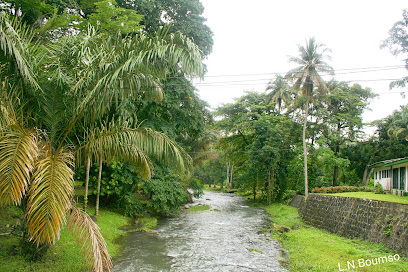
Ekom Nkam Waterfalls
Experience the stunning Ekom Nkam Waterfalls in Nkongsamba, a breathtaking natural attraction perfect for adventure seekers and nature lovers.
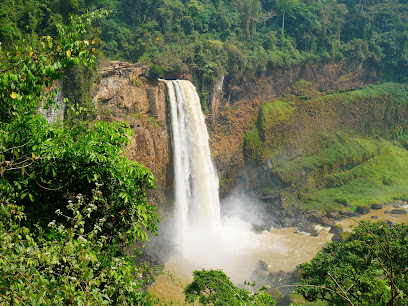
Parc de la Méfou (Ape Action Africa)
Observe rescued gorillas, chimpanzees, and monkeys in a semi-natural habitat at this unique primate sanctuary near Yaoundé, Cameroon.
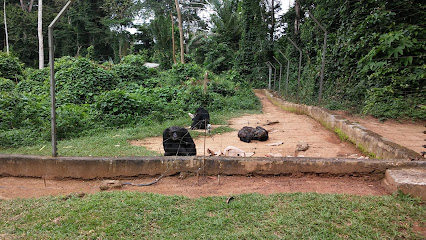
La Nouvelle Liberté
Discover La Nouvelle Liberté, a striking historical landmark in Douala, showcasing the city's vibrant culture and rich heritage.
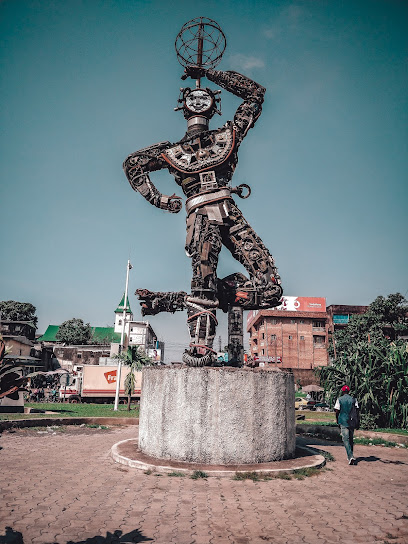
Karata Junction
Explore Karata Junction, a serene memorial park in Limbe, Cameroon, where history, culture, and nature come together for a tranquil experience.
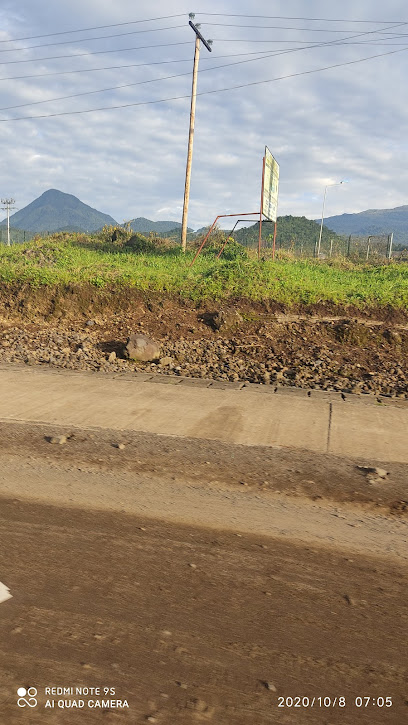
Douala - Eda Wildlife Reserve
Explore Cameroon's coastal paradise: Discover diverse wildlife, lush mangroves, and pristine beaches at Douala-Eda Wildlife Reserve.
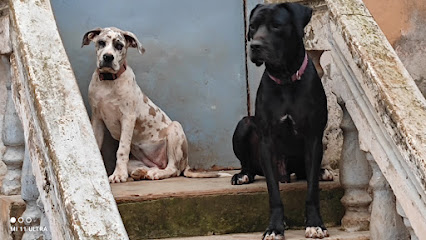
Essential places to dine
Hotel Seme Beach Resort& Spa
Discover serenity at Hotel Seme Beach Resort & Spa in Limbe – your ultimate coastal escape with luxury accommodations and breathtaking ocean views.
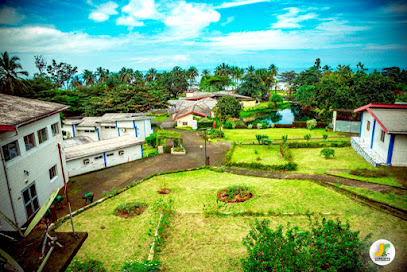
Boucareau
Experience tranquility at Boucareau Beach in Victoria's Gulf of Guinea – where golden sands meet azure waters.
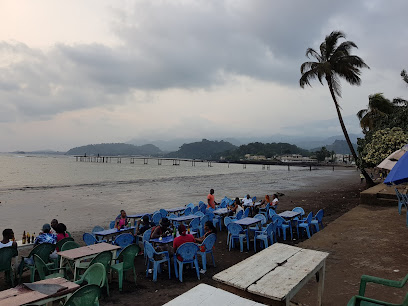
Atlantic Beach Hotel
Discover coastal beauty and rich history at Atlantic Beach Hotel in Limbe – a perfect getaway for relaxation and adventure.
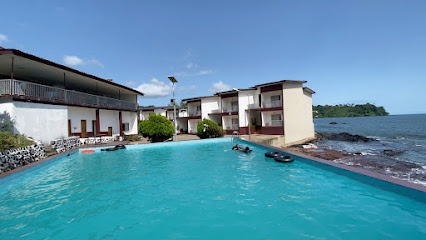
Big Bite
Discover the taste of Limbe at Big Bite - where delicious local cuisine meets stunning coastal views.
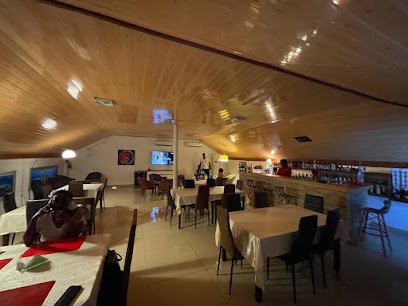
Bota S.S. Club
Discover authentic Cameroonian flavors at Bota S.S. Club, where beach views meet culinary excellence in Limbe.
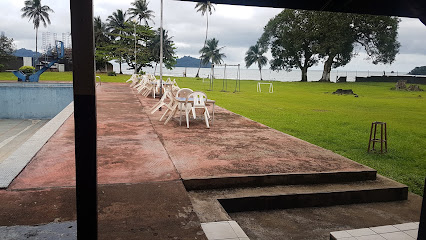
Savoy PALMZ Hotel
Discover comfort and convenience at Savoy PALMZ Hotel in Limbe – your gateway to exploring Cameroon’s stunning coastal beauty.
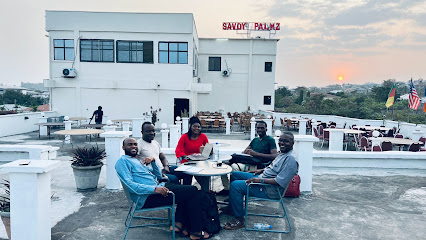
Marcsons Hotels and Resorts
Discover unparalleled comfort at Marcsons Hotels and Resorts in Limbe – where luxury meets warm Cameroonian hospitality.
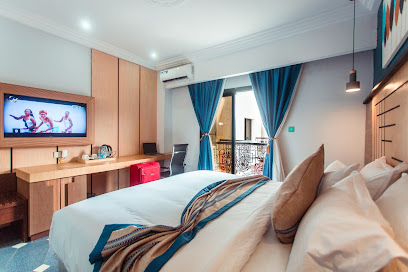
Musango Beach Hotel
Experience tranquility at Musango Beach Hotel in Limbe - where stunning ocean views meet comfort and adventure.
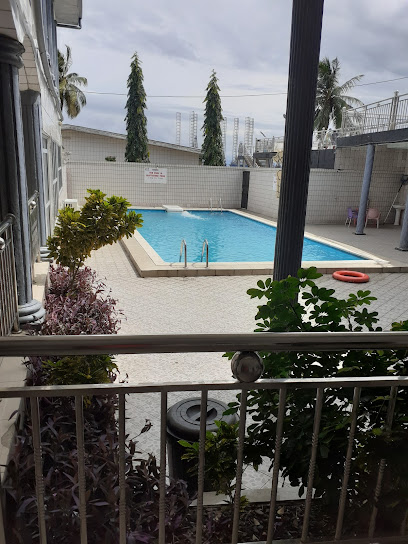
BIGGIE CHOPS
Experience the vibrant flavors of Cameroon at Biggie Chops in Limbe - where every dish tells a story.
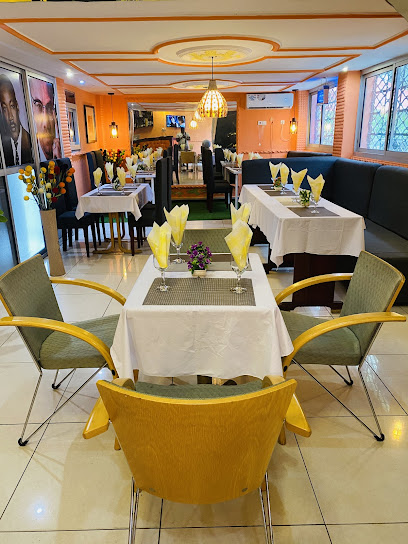
Black and White Limbe
Discover the vibrant nightlife at Black and White Limbe – where delicious cuisine meets an electrifying atmosphere in Cameroon.
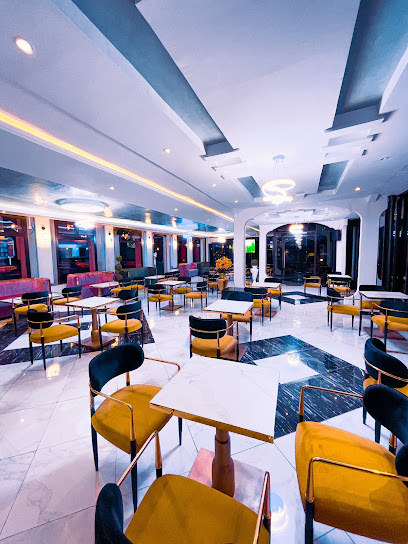
ARNE's Cafe
Experience the rich flavors of Cameroon at ARNE's Cafe in Limbe, where delicious meals meet stunning surroundings.
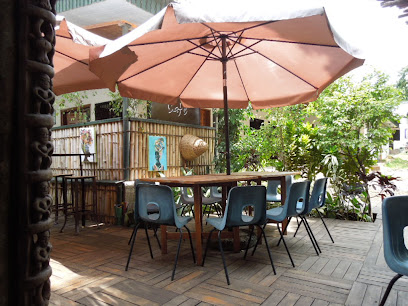
Salento Lounge Limbe
Experience vibrant nightlife and exquisite local cuisine at Salento Lounge Limbe – your ultimate coastal retreat.
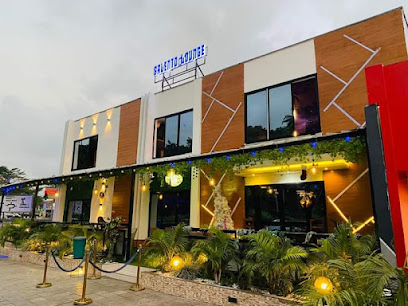
DADA Restaurant
Discover DADA Restaurant in Limbe: A vibrant dining experience offering local flavors and international cuisine in an inviting atmosphere.
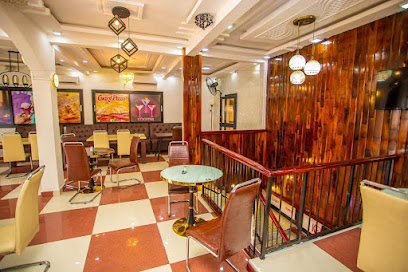
Paradise Of Taste
Experience the vibrant flavors of Cameroon at Paradise Of Taste - where every meal is a celebration of local and international cuisine.
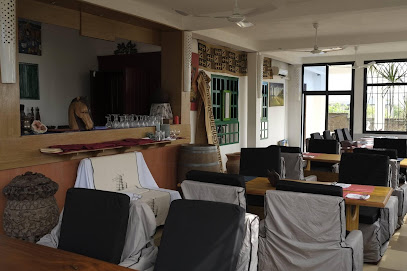
Etisah Beach Hotel
Experience serene coastal relaxation at Etisah Beach Hotel in Limbe – your gateway to pristine beaches and breathtaking ocean views.

Markets, malls and hidden boutiques
Douala Grand Mall
Experience the vibrant shopping and dining scene at Douala Grand Mall, a premier destination for tourists in Cameroon.
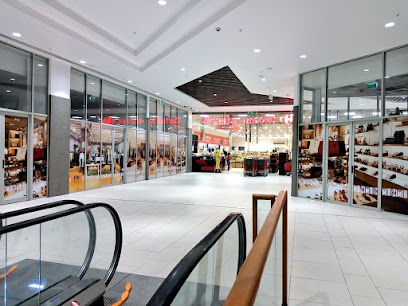
Timame poultry farm
Experience the vibrant culture and fresh flavors at Timame Poultry Farm in Mutengene, Cameroon - a must-visit market for every food lover.
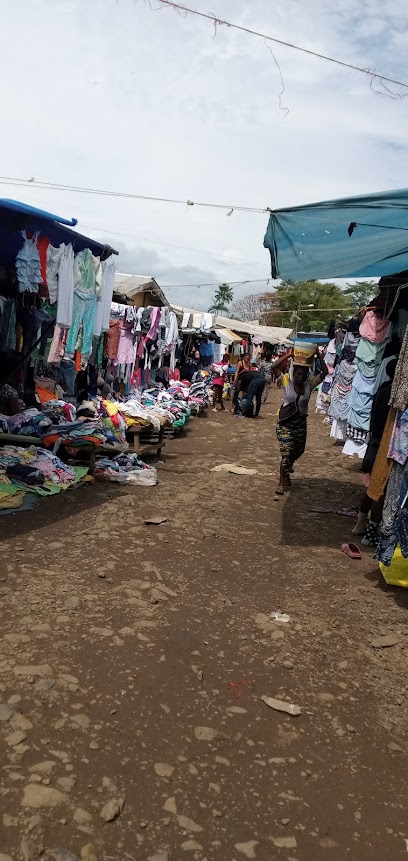
TOTAL Petrol Station Limbe
Discover convenience and local flair at TOTAL Petrol Station Limbe, your go-to stop for fuel and refreshments in the heart of Cameroon’s coastal paradise.
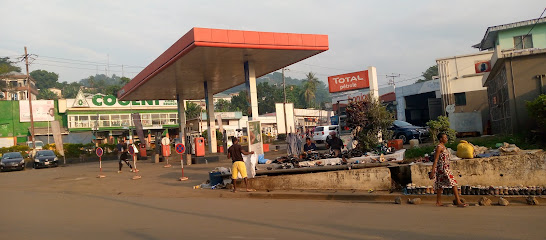
Lady L Hotel
Experience the coastal charm of Limbe at Lady L Hotel, your perfect retreat near Mount Cameroon and stunning beaches.
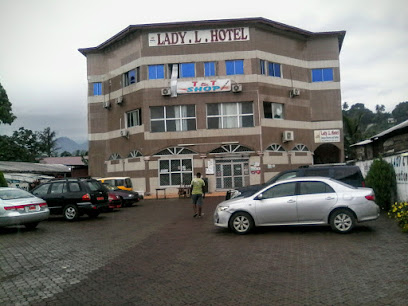
ROMIS
Explore the vibrant ROMIS shopping mall in Limbe, Cameroon, featuring clothing stores, toys, and exciting cultural events.
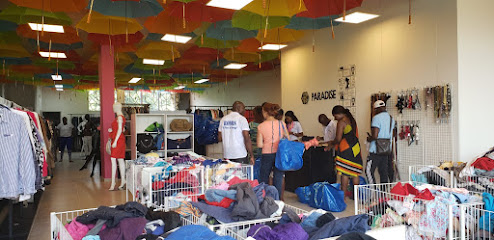
BAO Cash & Carry Limbe
Discover local goods and vibrant shopping at BAO Cash & Carry Limbe, a must-visit for tourists seeking authentic souvenirs and essentials.
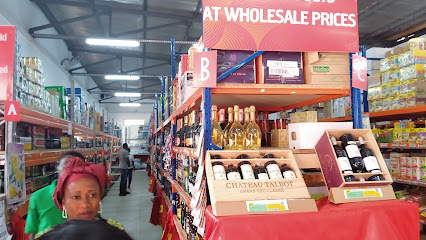
Blue Empire Holdings
Explore cutting-edge technology and exceptional electronics at Blue Empire Holdings in Buea, a must-visit destination for all tech lovers.
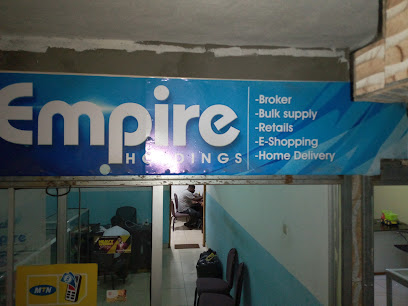
Labban Beach Hotel
Discover serenity at Labban Beach Hotel in Limbe, Cameroon, where stunning views and comfort unite for an unforgettable beach getaway.
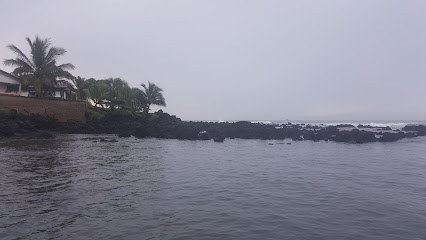
Bimbia Slave Trade Site
Explore the Bimbia Slave Trade Site, a poignant historical landmark that reveals the harrowing stories of the slave trade and its lasting impact.
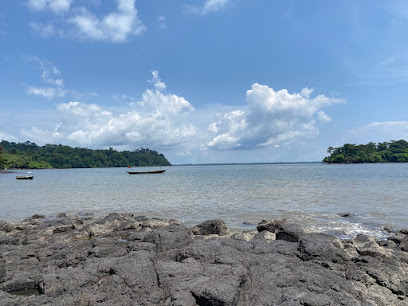
Limbe half mile
Explore the enchanting Limbe Half Mile, a unique dried flower shop showcasing nature's beauty in preserved floral artistry.
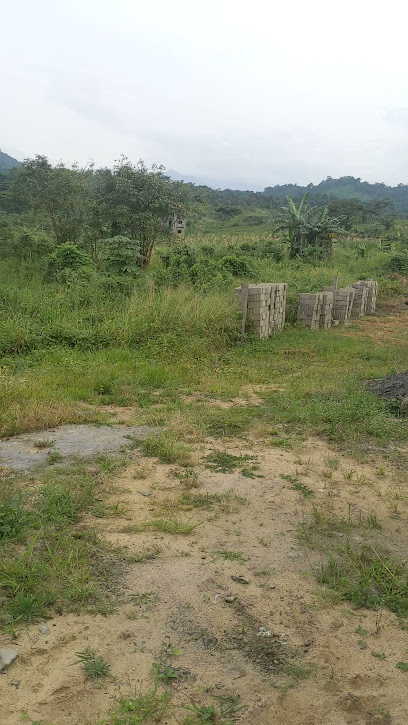
MOLLA SHOPPING
Discover the fashion-forward essence of Douala at Molla Shopping, where vibrant styles and local trends come together for an unforgettable experience.
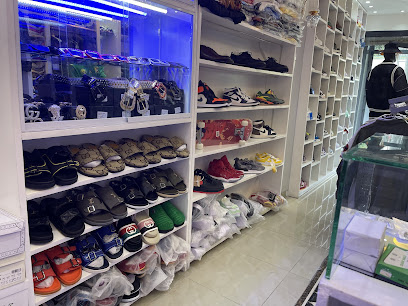
Kay-Boo-Ki
Discover Kay-Boo-Ki in Limbe, your one-stop baby store offering quality products for infants and toddlers in a friendly atmosphere.
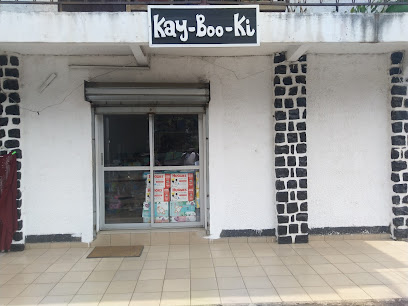
The Runway
Explore the vibrant fashion scene at The Runway, Limbe's go-to store for chic beachwear and unique accessories.
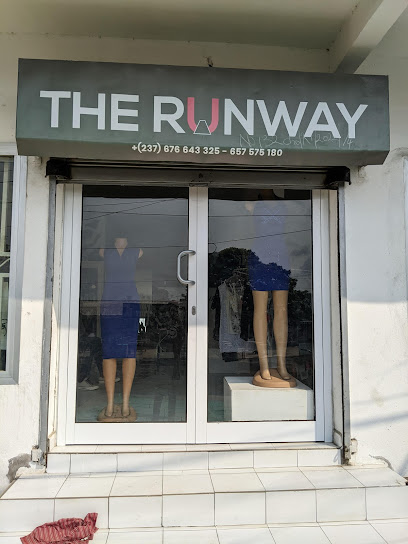
LIMAS KLOSET
Explore LIMAS KLOSET in Buea for unique Cameroonian fashion and crafts that reflect the vibrant local culture.
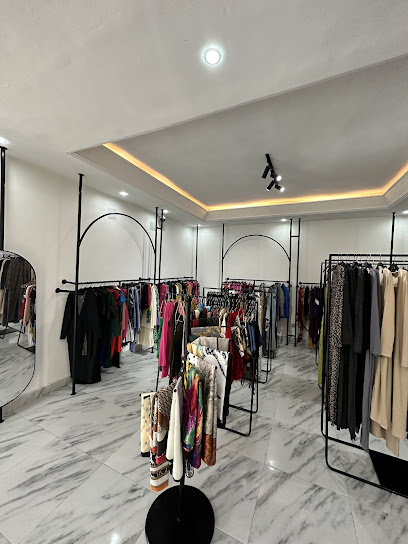
Elvis shopping center
Discover unique footwear options at Elvis Shopping Center in Buea, where local craftsmanship meets global fashion trends for every taste.

Essential bars & hidden hideouts
Big Bite
Experience the best of Cameroonian cuisine at Big Bite, a vibrant restaurant on Down Beach, Limbe, offering delicious meals and stunning views.
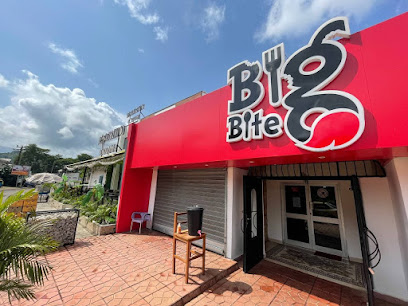
Bota S.S. Club
Experience the flavors of Cameroon at Bota S.S. Club in Limbe, where delectable dishes meet stunning ocean views for an unforgettable dining experience.
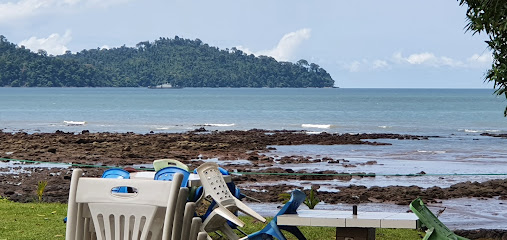
The Beach House, Botaland
Discover luxury and natural beauty at The Beach House in Limbe, Cameroon, where relaxation meets adventure by the ocean.
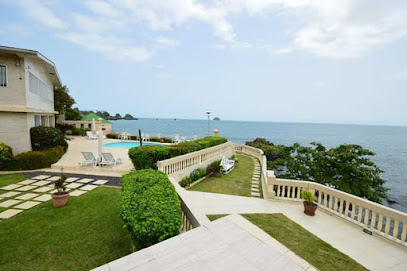
Black and White Limbe
Discover the vibrant nightlife and culinary delights at Black and White Limbe, the ultimate lounge and nightclub experience in Limbe.
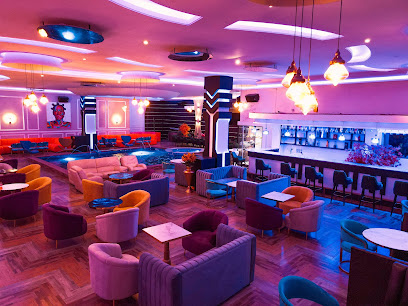
ARNE's Cafe
Experience the delicious flavors of Cameroon at ARNE's Cafe, a must-visit restaurant in Limbe for every food lover.
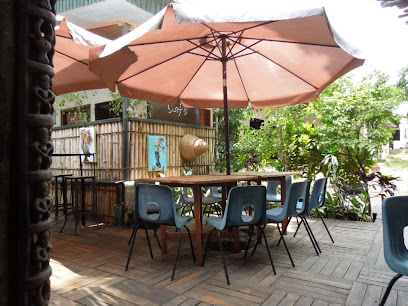
Apple Night Club
Discover the ultimate nightlife experience at Apple Night Club in Limbe, where vibrant music and a lively atmosphere await every night of the week.
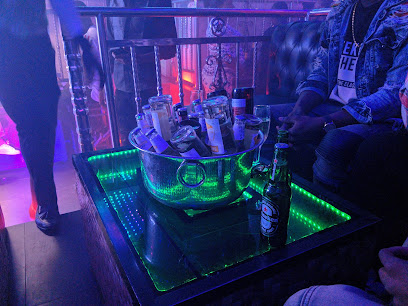
Salento Lounge Limbe
Discover the vibrant nightlife at Salento Lounge Limbe, where great drinks and a lively atmosphere await you in the heart of the city.
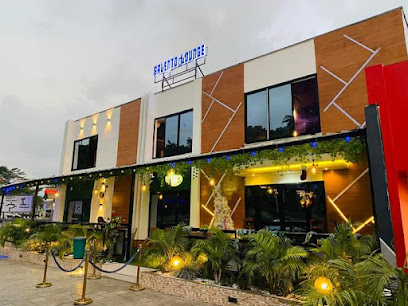
DADA Restaurant
Experience the vibrant flavors of Limbe at DADA Restaurant, a beloved dining spot known for its local dishes and inviting atmosphere.
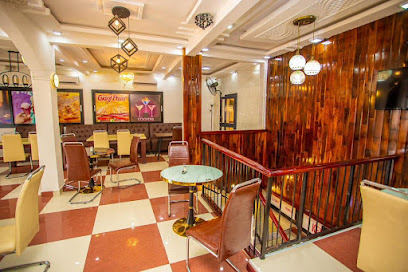
BARKUS HAPPY TIME
Experience the charm of Barkus Happy Time, a cozy wine bar in Limbe, where exquisite wines meet warm hospitality in a delightful setting.
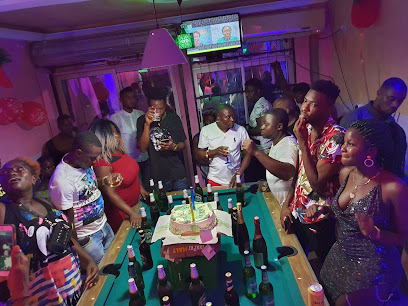
Bamboo Bar Busumbu
Discover the vibrant atmosphere and tropical delights at Bamboo Bar Busumbu in Limbe, a must-visit for an unforgettable local experience.

VERONA LOUNGE
Discover the vibrant nightlife at Verona Lounge in Limbe, where great drinks and a lively atmosphere await you.
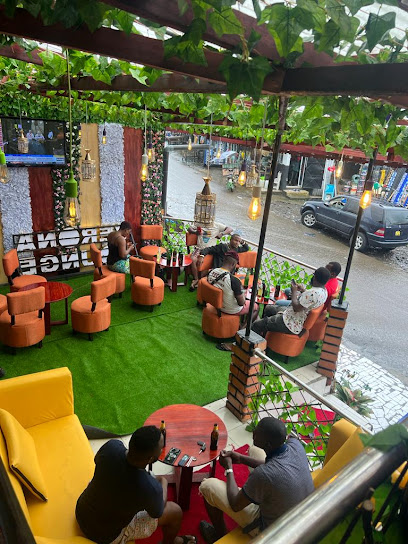
3S Half mile
Indulge in the authentic taste of Limbe at 3S Half Mile Grill, where grilled delights meet a welcoming atmosphere.
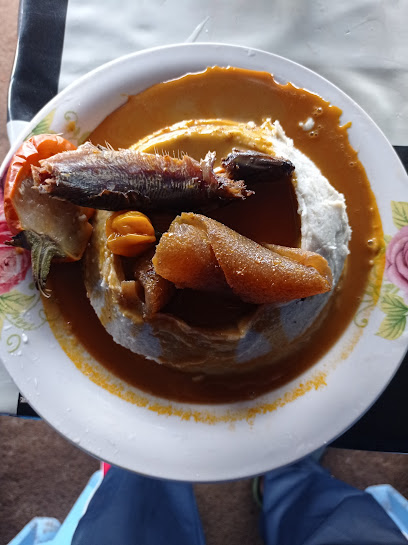
Ekowest LaClass Limbe
Experience the best of local grilling at Ekowest LaClass in Limbe, where flavor meets culture in a vibrant coastal setting.
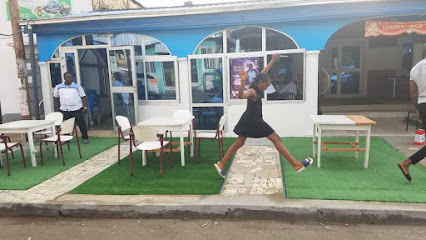
Down Beach Bar
Experience the vibrant atmosphere and local flavors at Down Beach Bar, a perfect spot for relaxation and socializing in Mutengene.
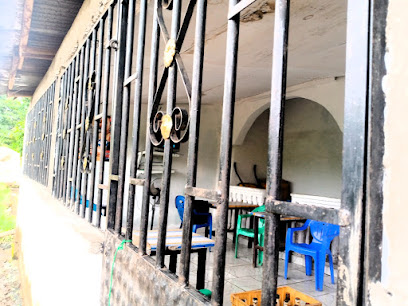
Local Phrases about Bimbia Beach
-
- HelloMbolo
[m-bo-lo] - GoodbyeKwaheri
[kwa-he-ri] - YesEya
[e-ya] - NoAyi
[a-yi] - Please/You're welcomeMboté
[m-bo-te] - Thank youAsante
[a-san-te] - Excuse me/SorrySamahani
[sa-ma-ha-ni] - How are you?Mbolo na yo?
[m-bo-lo na yo] - Fine. And you?Malamu. Na yo?
[ma-la-mu. na yo] - Do you speak English?O lingi ko zala moko na Anglais?
[o lin-gi ko za-la mo-ko na An-glais] - I don't understandNa ko koma
[na ko ko-ma]
- HelloMbolo
-
- I'd like to see the menu, pleaseNako tinda menu, tolongi
[na-ko tin-da me-nu, to-lon-gi] - I don't eat meatNa ko kolia nyama
[na ko ko-lia nya-ma] - Cheers!A maisha!
[a mai-sha] - I would like to pay, pleaseNako bima, tolongi
[na-ko bi-ma, to-lon-gi]
- I'd like to see the menu, pleaseNako tinda menu, tolongi
-
- Help!Mboté!
[m-bo-te] - Go away!Kende!
[ken-de] - Call the Police!Pelekisa polisi!
[pe-le-ki-sa po-li-si] - Call a doctor!Pelekisa dokoteli!
[pe-le-ki-sa do-ko-te-li] - I'm lostNakomi koluka
[na-ko-mi ko-lu-ka] - I'm illNakomi mokolo
[na-ko-mi mo-ko-lo]
- Help!Mboté!
-
- I'd like to buy...Nako linga...
[na-ko lin-ga] - I'm just lookingNa tinda
[na tin-da] - How much is it?Ezali komba?
[e-za-li kom-ba] - That's too expensiveEzali moko mingi
[e-za-li mo-ko min-gi] - Can you lower the price?O lingi ko bima le prix?
[o lin-gi ko bi-ma le pree]
- I'd like to buy...Nako linga...
-
- What time is it?Ngai na moni?
[ngai na mo-ni] - It's one o'clockEzali mokele moko
[e-za-li mo-ke-le mo-ko] - Half past (10)Motuya ya (10)
[mo-tu-ya ya (10)] - MorningMokolo
[mo-ko-lo] - AfternoonMibalé
[mi-ba-le] - EveningMibale
[mi-ba-le] - YesterdayMokolo mwa mwasi
[mo-ko-lo mwa mwa-si] - TodayMokolo
[mo-ko-lo] - TomorrowMokolo mwa miso
[mo-ko-lo mwa mi-so] - 1Moja
[mo-ja] - 2Mbili
[m-bi-li] - 3Tatu
[ta-tu] - 4Nne
[n-ne] - 5Tano
[ta-no] - 6Sita
[si-ta] - 7Saba
[sa-ba] - 8Nane
[na-ne] - 9Tisa
[ti-sa] - 10Kumi
[ku-mi]
- What time is it?Ngai na moni?
-
- Where's a/the...?Kila zala...
[ki-la za-la] - What's the address?Kini adrese?
[ki-ni a-dre-se] - Can you show me (on the map)?Olingi ko montrer nga (na mapa)?
[o-lin-gi ko mon-tre nga (na ma-pa)] - When's the next (bus)?Nini moko ya pamba?
[ni-ni mo-ko ya pam-ba] - A ticket (to ....)Makiti (ko ....)
[ma-ki-ti (ko ....)]
- Where's a/the...?Kila zala...
History of Bimbia Beach
-
Bimbia was once a thriving kingdom before the arrival of European colonizers. The area was ruled by the Isubu people, who were known for their sophisticated social structure and thriving trade networks. The Isubu established Bimbia as a central trading hub where various goods, including palm oil, fish, and ivory, were exchanged.
-
European traders, primarily Portuguese and later British, began arriving in Bimbia in the 17th century. They were attracted by the region's rich resources and strategic coastal location. This period marked the beginning of significant cultural exchanges and, unfortunately, the rise of the transatlantic slave trade.
-
Bimbia played a notorious role in the transatlantic slave trade. It became one of the major slave ports in West Africa. Captured individuals from the interior regions were brought to Bimbia, held in chains, and then shipped across the Atlantic to the Americas. Today, remnants of this dark history, such as chains and holding cells, can still be found in the area.
-
By the early 19th century, the British began to enforce the abolition of the slave trade. Bimbia saw a decline in slave trading activities as the British Navy patrolled the coast to intercept slave ships. This era marked the beginning of a new chapter for Bimbia, as efforts to transition to legitimate trade intensified.
-
In the late 19th century, Bimbia fell under German colonial rule as part of Kamerun. The Germans introduced new administrative structures, built infrastructure, and attempted to exploit the region's resources. However, their reign was short-lived, ending with their defeat in World War I.
-
After World War I, Bimbia, along with the rest of Cameroon, was divided between the British and French under League of Nations mandates. The British controlled the western part, including Bimbia. This period saw the introduction of English educational systems and legal practices, which influenced the local culture and governance.
-
Cameroon gained independence from British and French rule in 1960 and 1961 respectively. Since then, Bimbia has been part of the Republic of Cameroon. The area has embraced its rich history and cultural heritage, making it an important site for historical tourism and education. The legacy of Bimbia's past is preserved in local museums and cultural centers, offering visitors a glimpse into its significant history.
Bimbia Beach Essentials
-
Bimbia Beach is located in the South West Region of Cameroon, near the town of Limbe. The nearest international airport is Douala International Airport, approximately 75 kilometers away. From Douala, you can take a taxi or a private car hire to Limbe, which takes about 1.5 to 2 hours. From Limbe, Bimbia Beach is a short drive away, and local taxis are available for this final leg of the journey.
-
In Bimbia Beach, the most common form of transportation is by taxi or motorcycle taxi, known locally as 'okada'. These are readily available and relatively inexpensive. For longer trips or more comfortable travel, car rentals from Limbe are an option. Walking is also feasible for short distances within the beach area. Public buses operate between major towns, but for convenience, private transportation is recommended.
-
The official currency in Cameroon is the Central African CFA franc (XAF). Credit cards are accepted in some hotels, restaurants, and larger shops, but it is advisable to carry cash, especially for smaller establishments and local vendors. ATMs are available in Limbe, so ensure you withdraw sufficient cash before heading to Bimbia Beach.
-
Bimbia Beach is generally safe for tourists, but it is advisable to take standard precautions. Avoid walking alone at night and keep an eye on your belongings in crowded areas. Some areas in Limbe and Douala have higher crime rates, so it's best to stay vigilant and avoid isolated areas at night. Consult locals or your accommodation for advice on which areas to avoid.
-
In case of emergency, dial 117 for police assistance and 119 for medical emergencies. The nearest hospital is in Limbe, which has facilities to handle most emergencies. It is recommended to have travel insurance that covers medical emergencies. For minor health issues, there are pharmacies in Limbe where you can purchase over-the-counter medications.
-
Fashion: Do dress modestly, especially when interacting with locals or visiting religious sites. Avoid wearing overly revealing clothing. Religion: Do respect local customs and traditions. Avoid discussing sensitive topics related to religion. Public Transport: Do be respectful and polite to drivers and other passengers. Don't eat or drink on public transport. Greetings: Do greet people with a handshake. A friendly smile and a few words in the local language, such as 'Bonjour' or 'Bonsoir', are appreciated. Eating & Drinking: Do try local foods and accept food offerings graciously. Don't refuse hospitality, as it is considered impolite.
-
To experience Bimbia Beach like a local, visit the local markets where you can buy fresh seafood and traditional Cameroonian goods. Engage with locals, as they are often friendly and willing to share stories about the region's history and culture. Don't miss visiting the Bimbia Slave Trade Site for a historical perspective. For a unique experience, take part in local fishing activities or enjoy a boat ride along the coast.
Nearby Cities to Bimbia Beach
-
Things To Do in Tiko
-
Things To Do in Buea
-
Things To Do in Malabo
-
Things To Do in Douala
-
Things To Do in Luba
-
Things To Do in Edea
-
Things To Do in Kribi
-
Things To Do in Nkongsamba
-
Things To Do in Calabar
-
Things To Do in Dschang
-
Things To Do in Uyo
-
Things To Do in Mamfe
-
Things To Do in Bafoussam
-
Things To Do in Mbouda
-
Things To Do in Bafia








